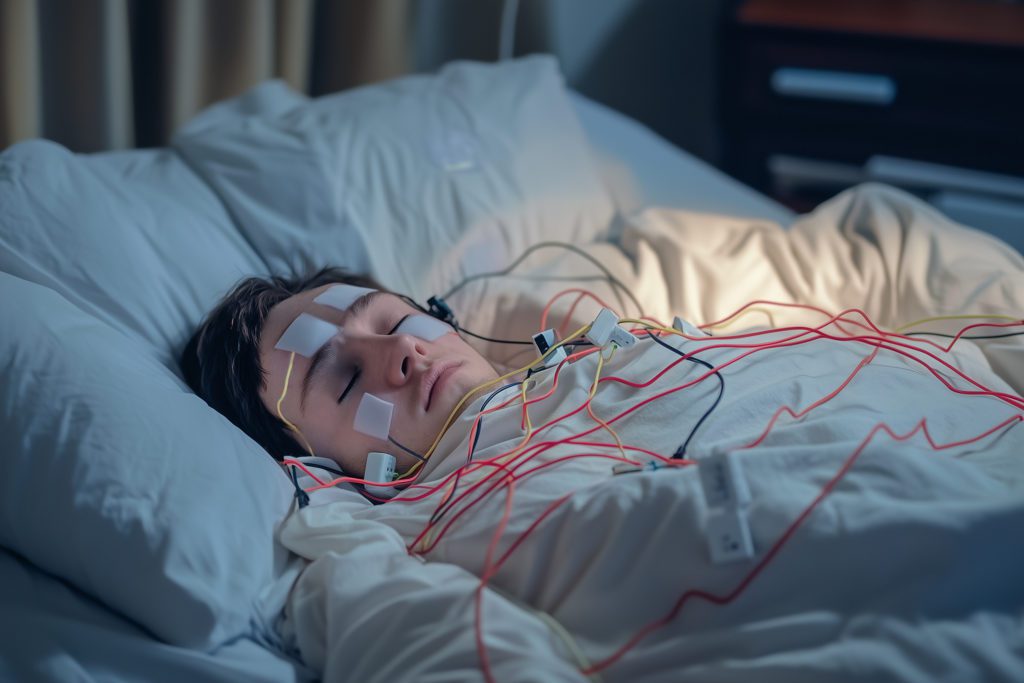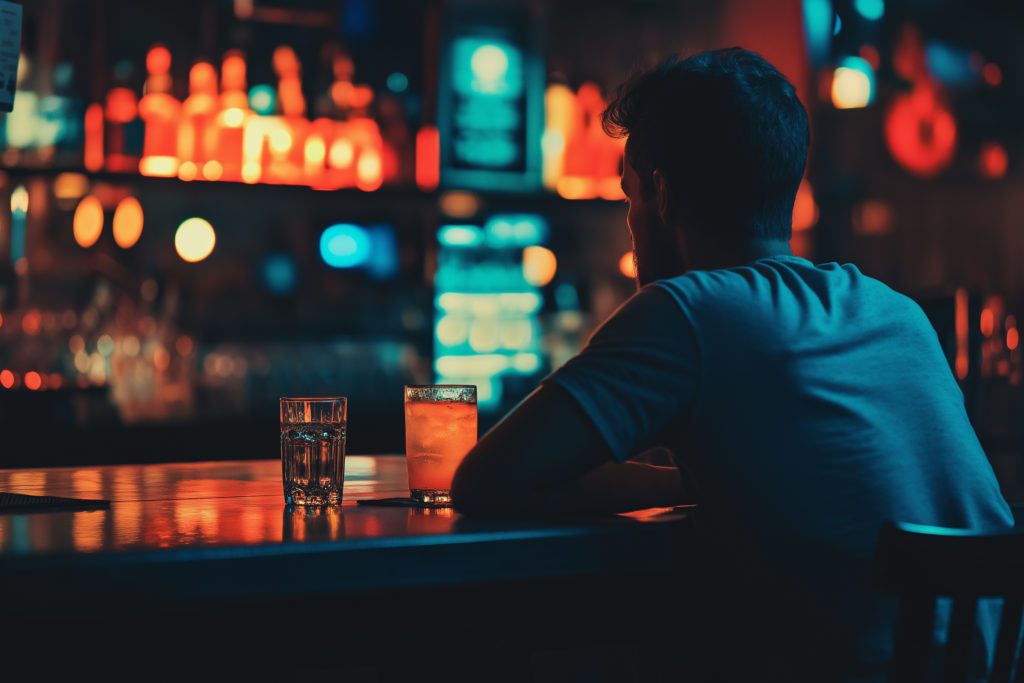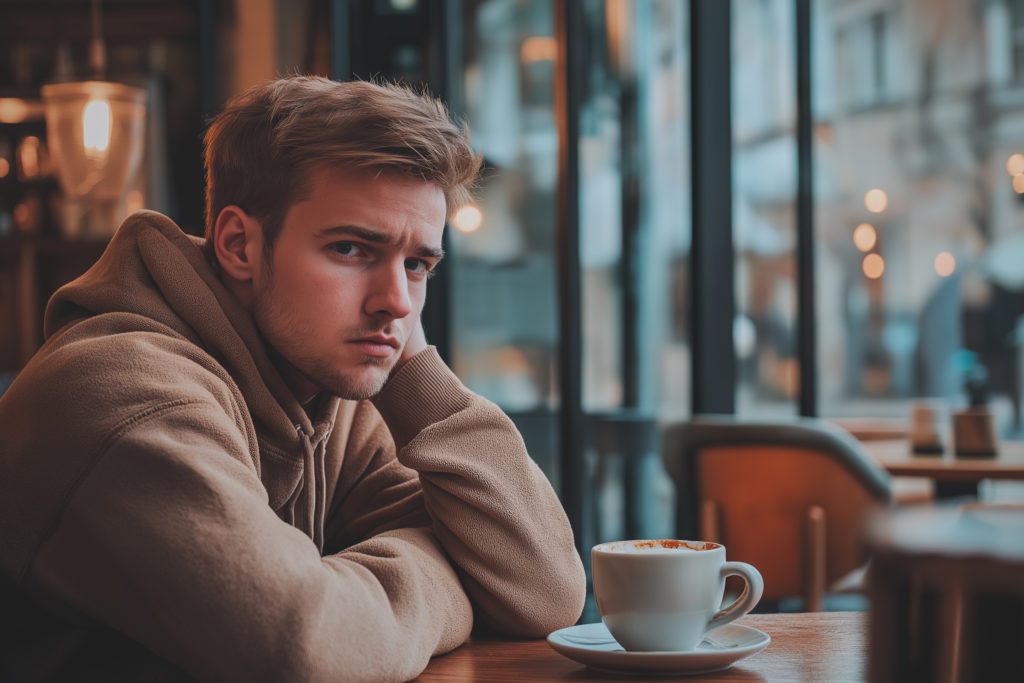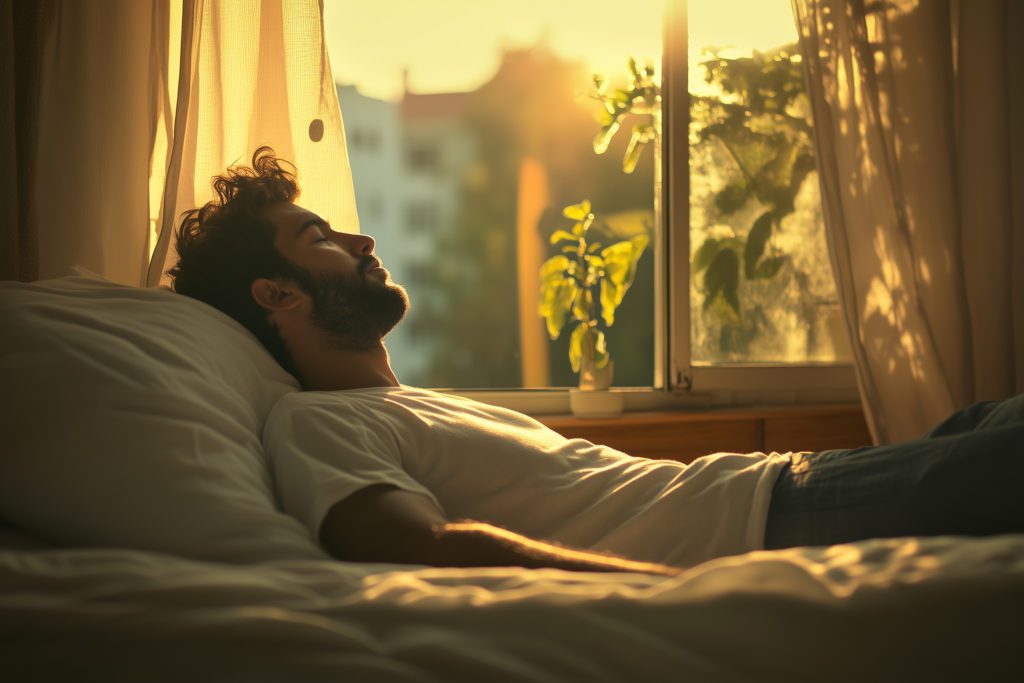
Why Do I Feel Thirsty at Night?
It’s normal to be mildly thirsty at night, but certain factors may cause excessive thirst. Explore possible causes and learn what you can do.
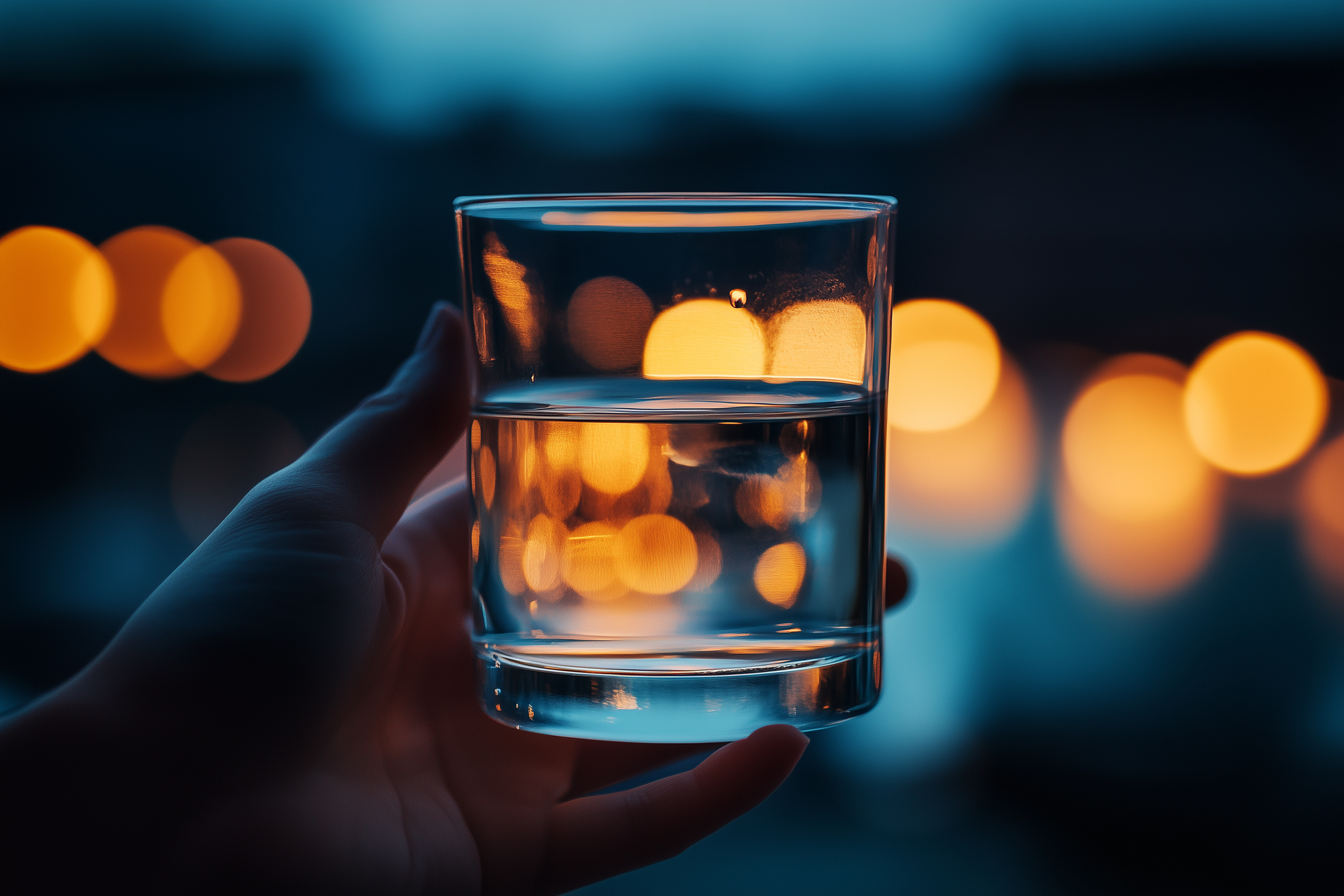
Have you ever felt the need to chug some water right before bed or even felt as though you couldn’t drink enough water to wet your throat when you woke up in the middle of the night? Not only can it be frustrating to be this thirsty, but drinking water right before bed comes with the worry that, at some point in the night, you’ll wake up and need to take a trip to the bathroom.
If you’re continually feeling thirsty throughout the night, you may even start to feel concerned. However, while excessive thirst may sometimes be a sign of a medical condition, other times, it is something much more manageable.
Why Am I Thirsty at Night?
When you feel thirsty, it’s your body sending signals that it needs hydration, something that is required to maintain overall health and well-being since water is needed to complete many different vital functions, including lubricating your joints, regulating your body temperature, and transporting oxygen to cells in your body. If your body doesn’t have enough water to work with, that’s when the signal of thirst is sent.
However, the need for water right before bed also has some physiological basis. Specifically, there’s a small region in your brain called the suprachiasmatic nucleus (SCN), which functions as a biological clock. Around 20% of this region produces arginine vasopressin (AVP), which is a type of hormone that helps to regulate your body’s fluid balance by reducing urine production when necessary. This is one of the reasons why you don’t need to go to the bathroom as much during the night as you do during the day.
AVP causes your body to crave more fluids, though, with the AVP neurons increasing in activity right before you go to bed, which may be why you feel thirsty before going to sleep. Experts believe that this increase in activity and resulting thirstiness builds as a form of protection against the potential fluid loss that may occur when sleeping. So long as you have properly hydrated during the day, though, there is no need to drink before bed even if you feel thirsty.
Reasons for Increased Nighttime Thirstiness
While some thirstiness is common before bed and can typically be ignored if you have had enough water during the day, there are other factors that may increase your thirst at night.
Lifestyle Factors
Not only can consuming too little water during the day make you thirsty, but drinking alcohol or caffeinated beverages too close to bedtime can lead to thirstiness because of their diuretic properties. Specifically, alcohol and caffeine increase your urine production and potentially cause dehydration, which then increases your desire for water.
Smoking is another factor that can increase thirstiness because of its side effects of dry mouth. When your mouth is dry, you have an urge to wet it, which is why you may feel thirsty.
In these cases, avoiding alcohol and caffeine before bed and quitting smoking can help to abate any nighttime thirstiness.
Medical Conditions
In some cases, your excessive thirstiness may be from a medical condition, specifically those that disrupt your fluid balance. Some conditions that fall into this category include hormonal imbalances (e.g., menopause), diabetes, anemia, and kidney problems. If other unpleasant symptoms accompany your excessive thirst, it’s best to discuss your symptoms with your doctor. For many of these conditions, receiving proper treatment and managing your health can help to reduce your symptoms, including any nighttime thirstiness.
In addition to conditions themselves causing thirstiness, certain medications used to treat various health conditions, such as diabetes, high blood pressure, and some sleep disorders, may also have increased thirst as a side effect. However, if you suspect that it is your medication that is causing your excessive nighttime thirst, discuss this with your healthcare provider rather than discontinuing your medication on your own. They may be able to lower your dosage to help minimize side effects or even find an alternative medication that doesn’t produce this side effect.
Eating Salty Foods
Sodium can result in a dehydrating effect on your body. So, when you consume foods with a lot of sodium, such as foods that are processed, your body retains water in order to maintain balance in your body. However, this then causes thirst.
To prevent nighttime thirstiness, it can help to reduce sodium intake throughout the day, and especially right before bed. This means putting less salt in your food while also avoiding processed foods, as they commonly contain high levels of salt to help increase shelf stability.
Sleep Disorders
Certain sleep disorders may cause you to wake up during the night feeling thirsty. Specifically, those that cause mouth breathing, as this can lead to dryness in the mouth or throat and a desire for water to remedy it. Sleep disorders such as snoring and sleep apnea, which result from obstructed airways, can both lead to mouth breathing.
Adding to dry mouth, snoring and sleep apnea can lead to nighttime disruptions that rouse you from sleep. This then increases your odds of waking in the night and wanting a drink of water—if you were to sleep soundly, you wouldn’t have this same urge.
Sleep apnea also leads to an increased production of urine due to disrupted breathing, which disturbs the normal regulation of hormones such as antidiuretic hormone (ADH), which helps control urine production in the body. As a result of these disruptions, you may produce more urine, which can then lead to dehydration and a need to drink water.
Your Bedroom Environment
Your bedroom may be contributing to your nighttime thirst. Namely, dry air, which can be brought on by the colder months and the use of heating systems, can cause more water to evaporate from your skin and respiratory system, leading to a dry mouth and throat.
Furthermore, if your bedroom temperature is too hot, you may sweat more in order to regulate your temperature. However, this leads to fluid loss, which can prompt dehydration.
Quenching Your Nighttime Thirst
Our bodies naturally desire water before bed because of the activity of certain regions of the brain, but as long as you’re properly hydrated during the day, you don’t truly need to drink anything. However, certain factors may cause excessive thirst at night.
Whether it’s the mouth-drying effects of snoring, the dehydration that follows alcohol or sodium consumption, or a side effect of a medical condition, there may be many reasons why you feel so thirsty at night. If you’re ever concerned, it’s best to discuss your thirstiness with your doctor.

Written by
Jessica G
Medical writer freelancer who has written hundreds of articles on varying topics. Masters of Engineering degree in Biomedical Engineering.
Download Pillow
Get help
Press & News
Legal
Connect
X (Twitter)
Company
Copyright © Neybox Digital Ltd.
